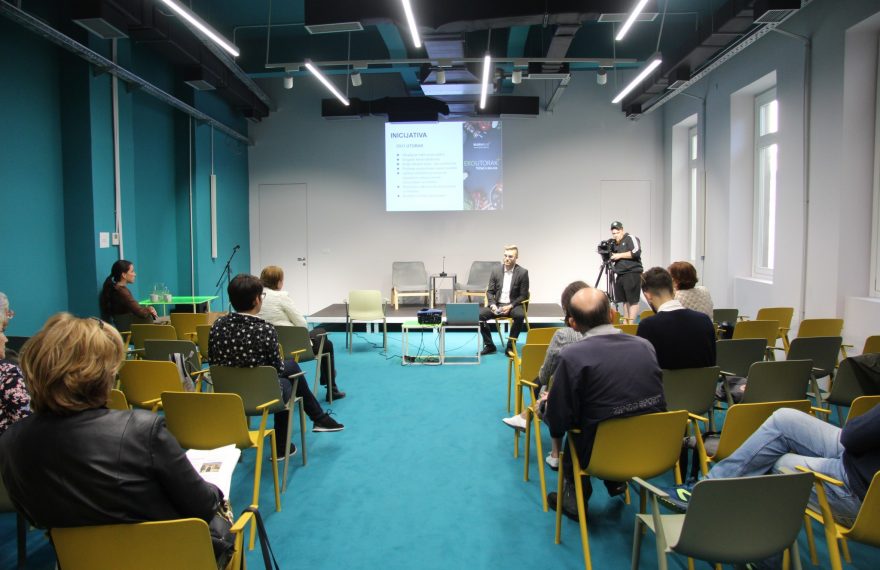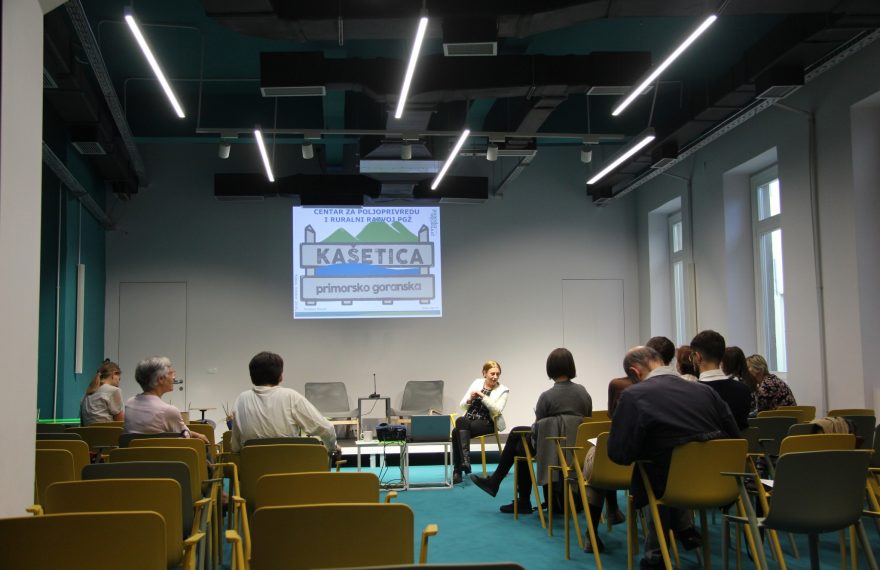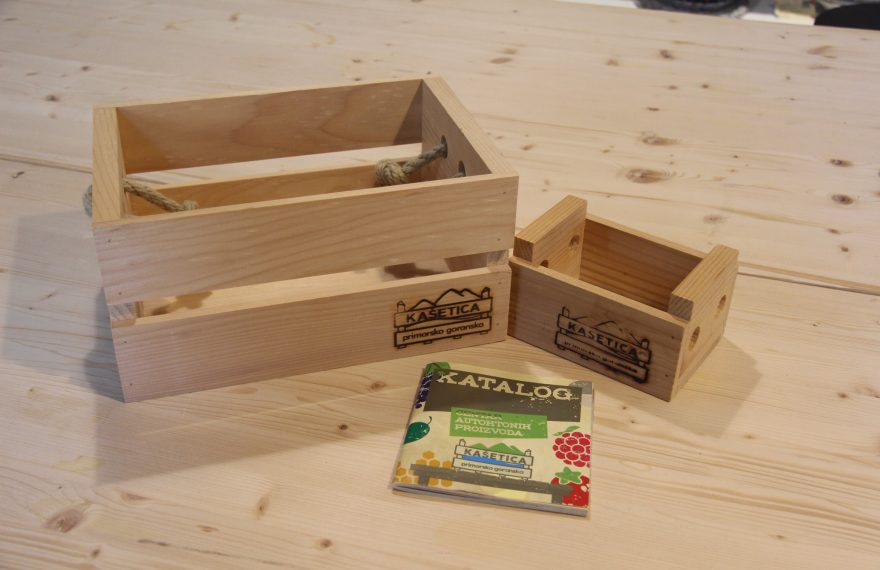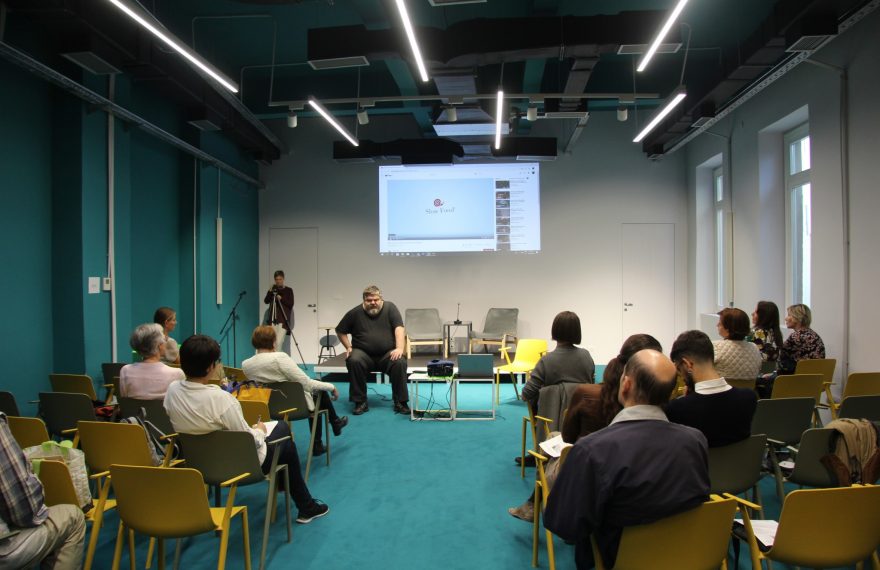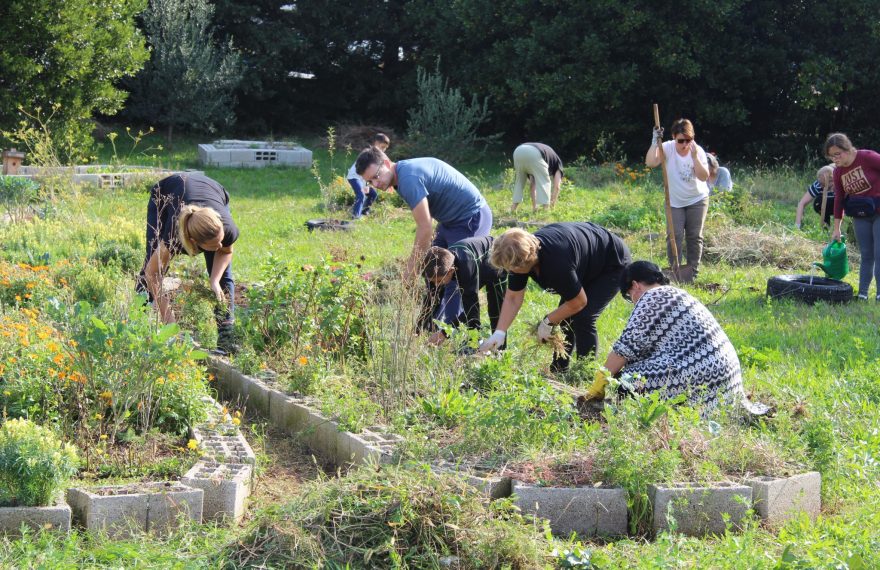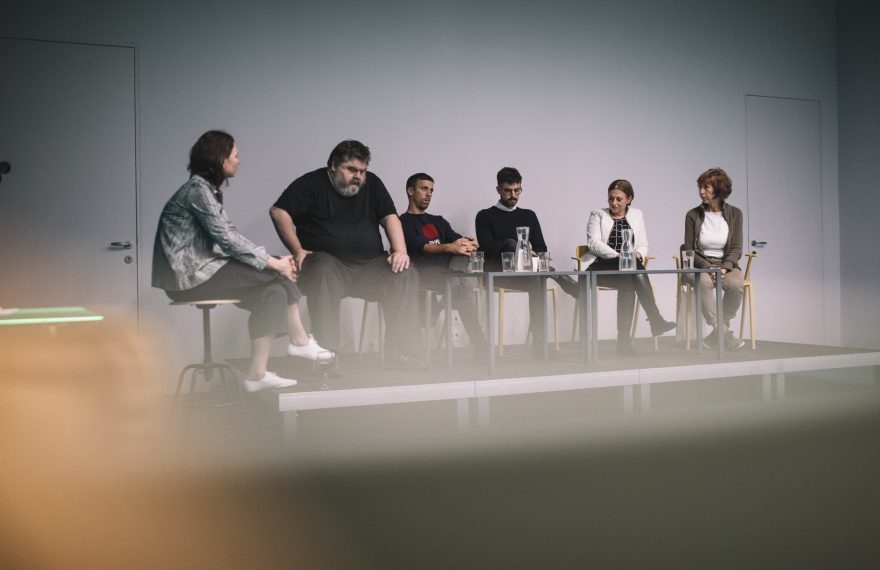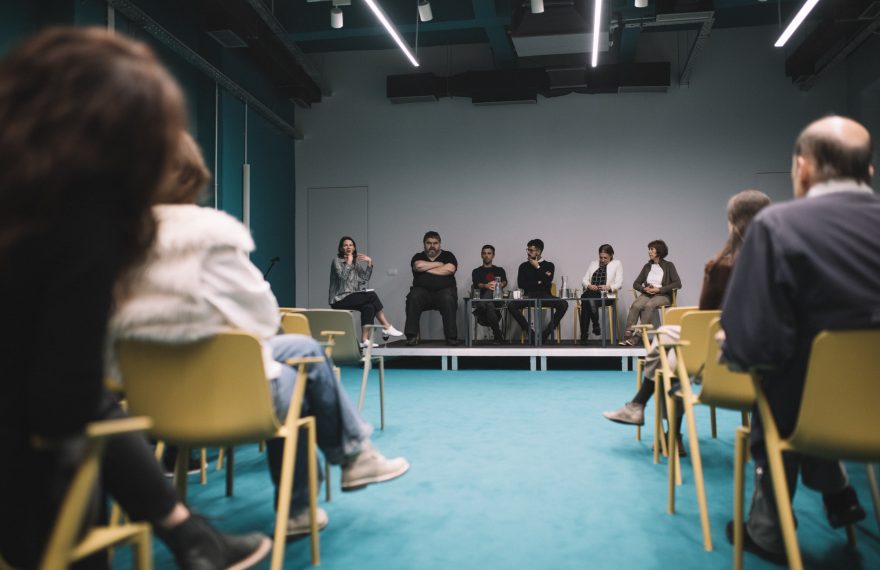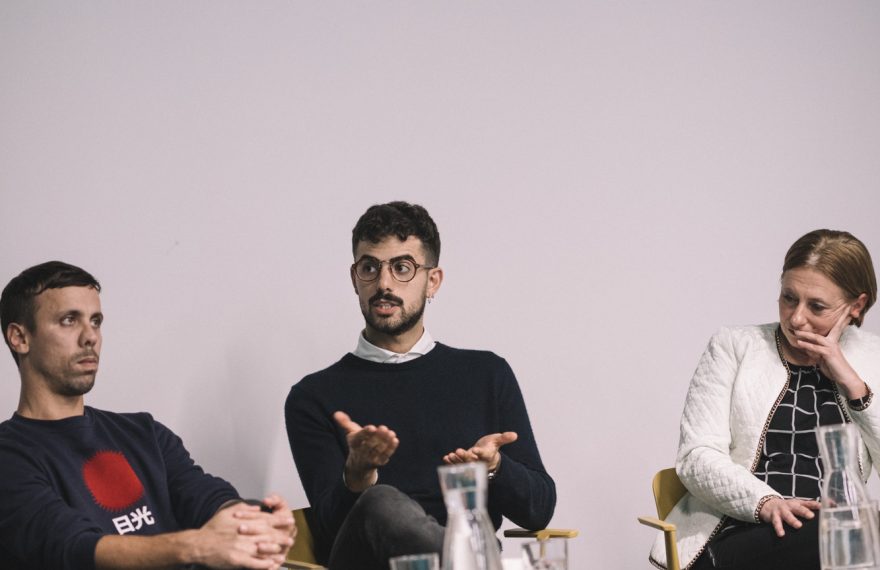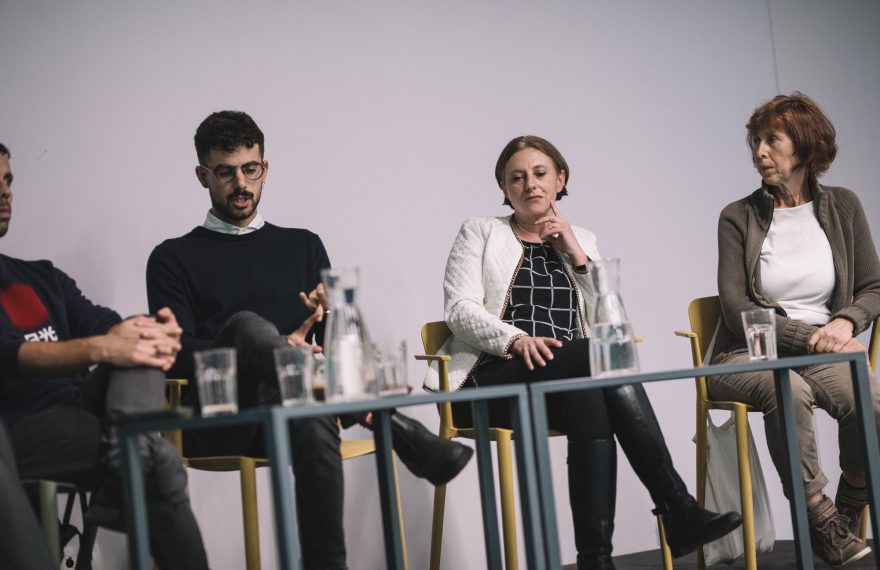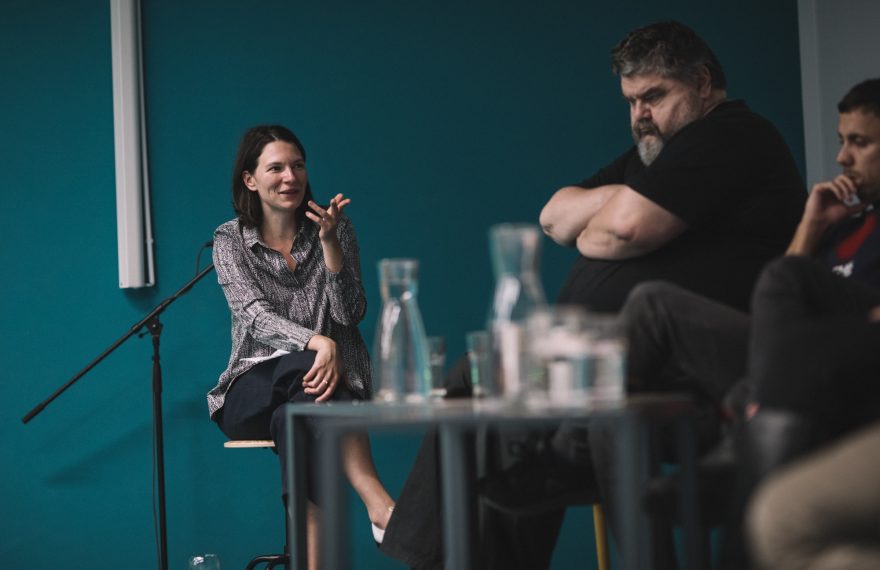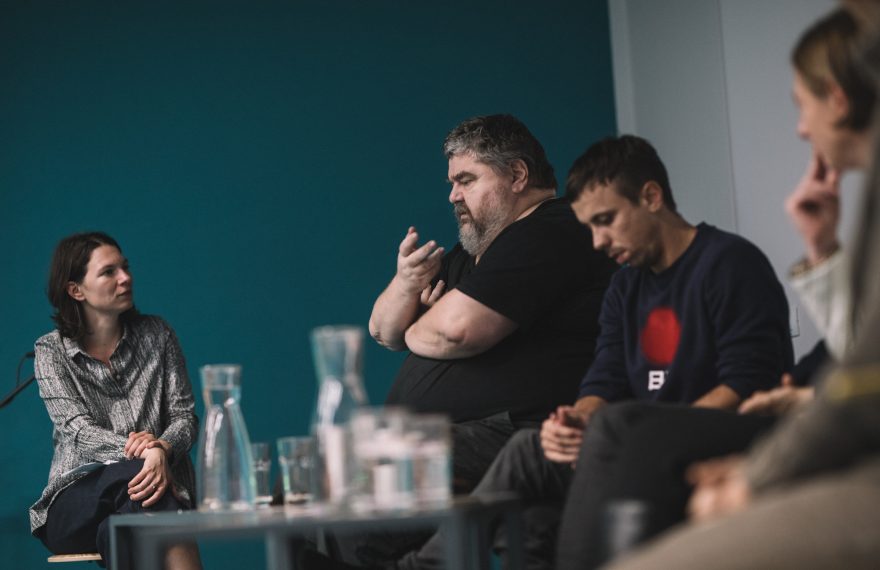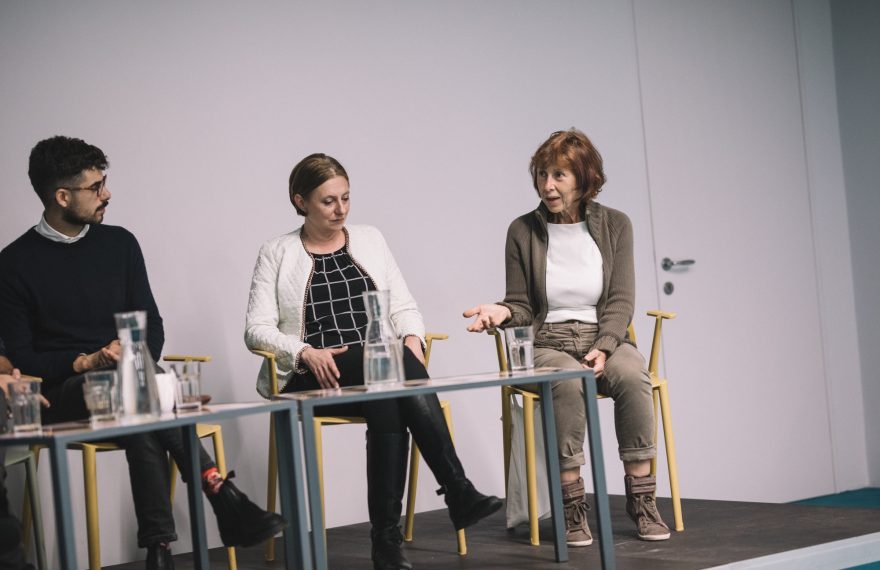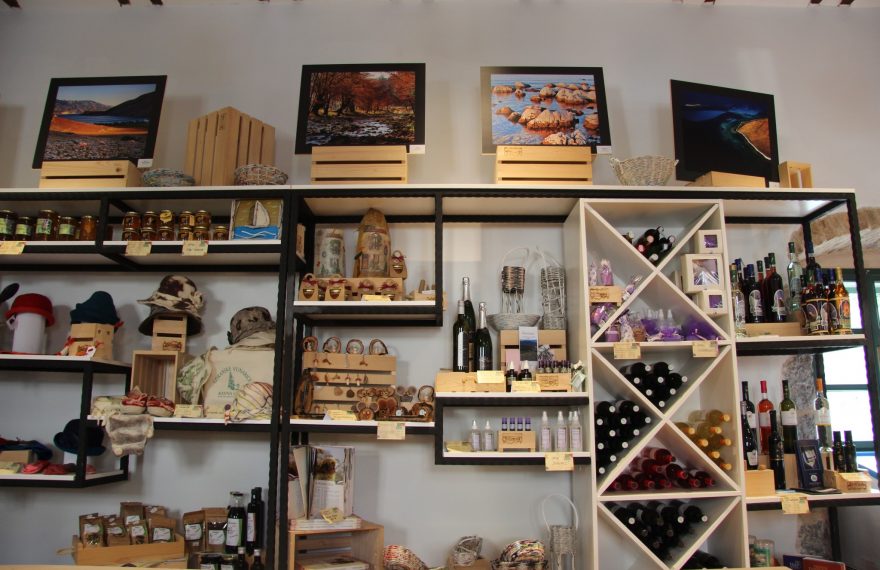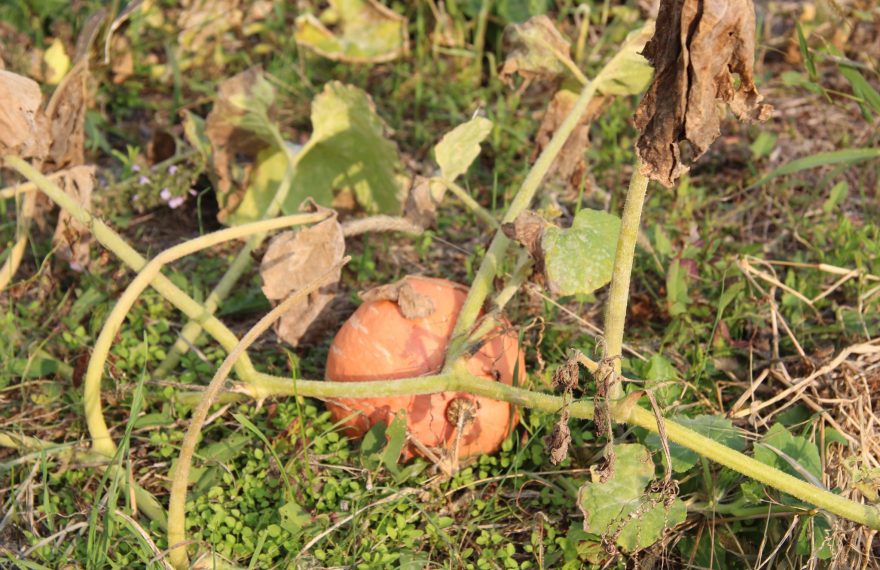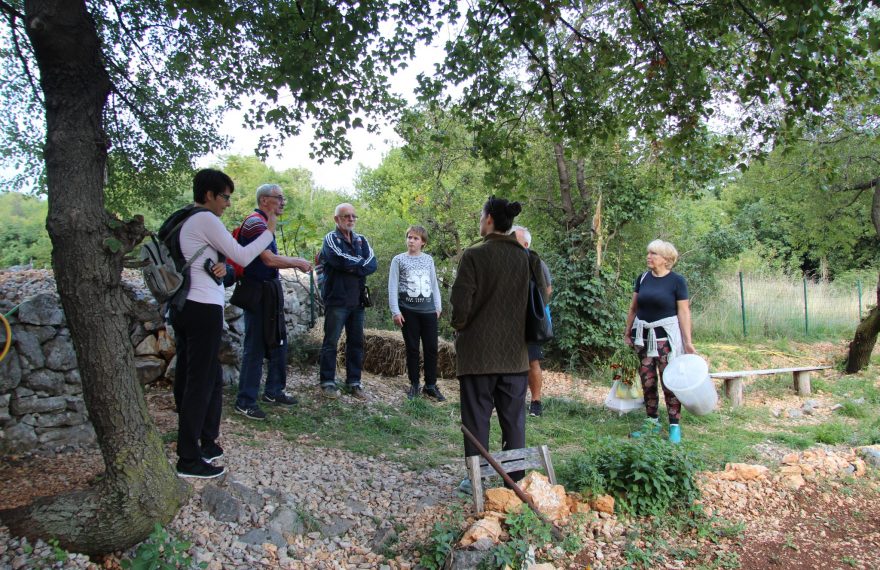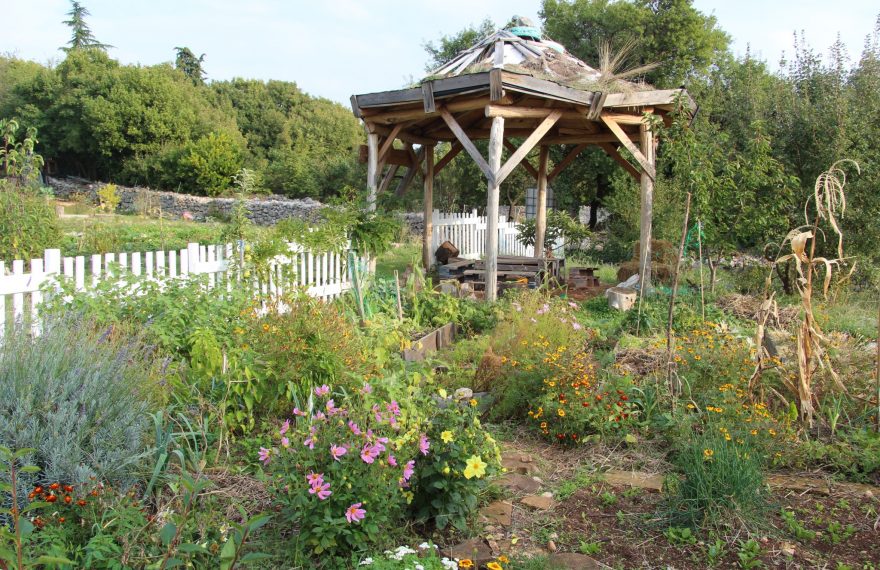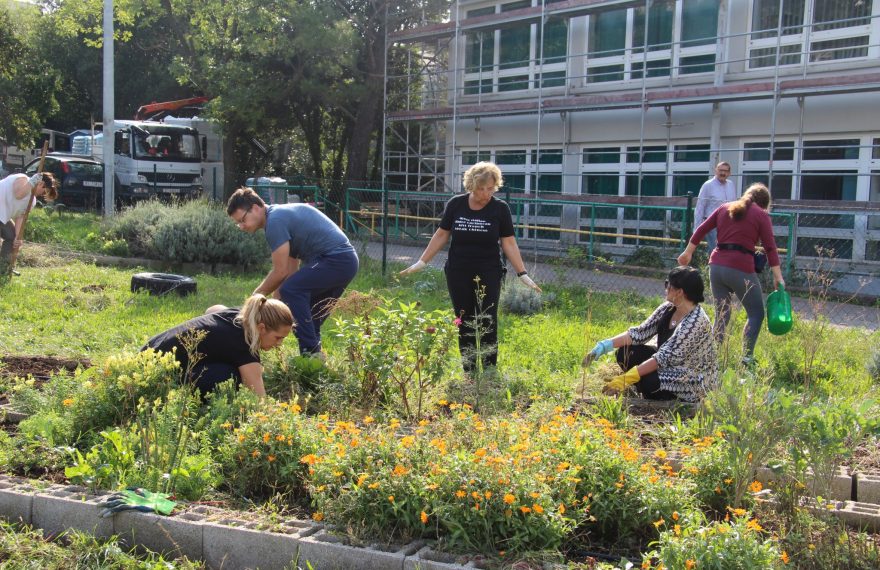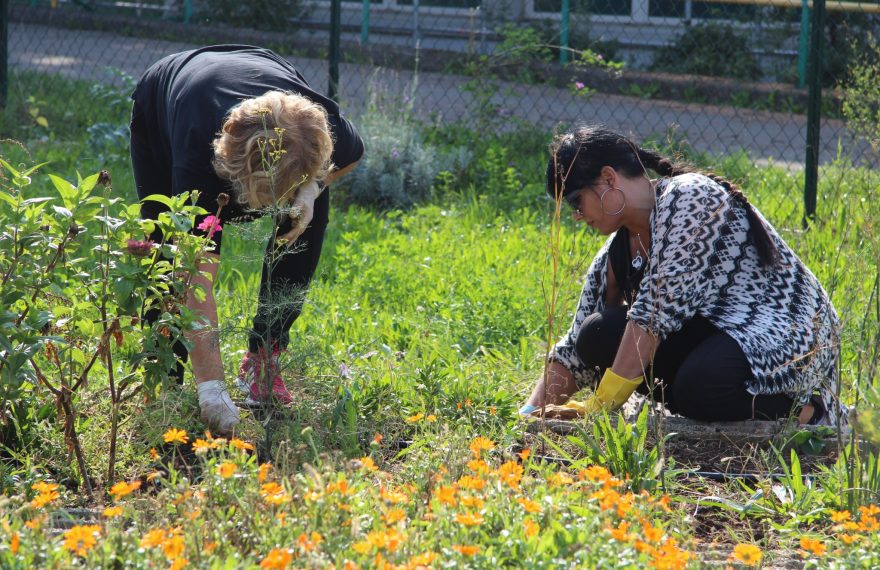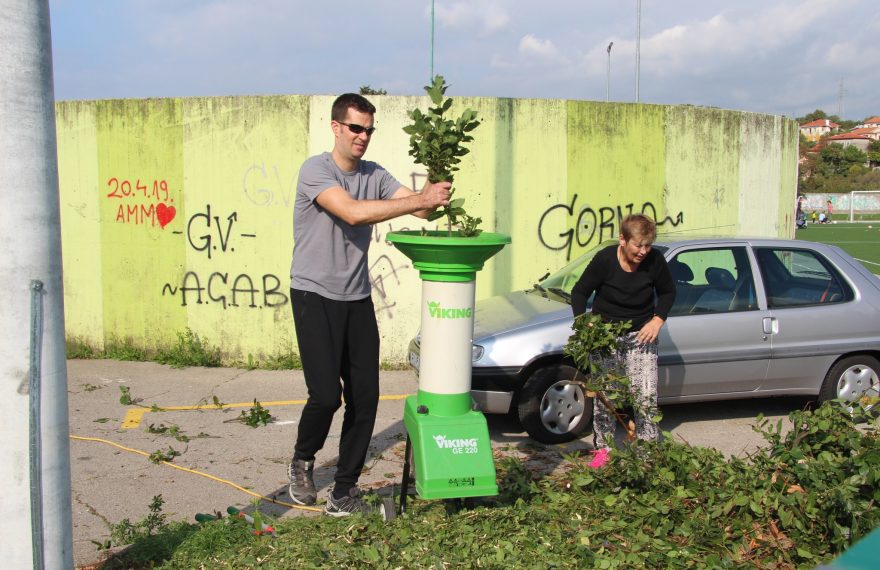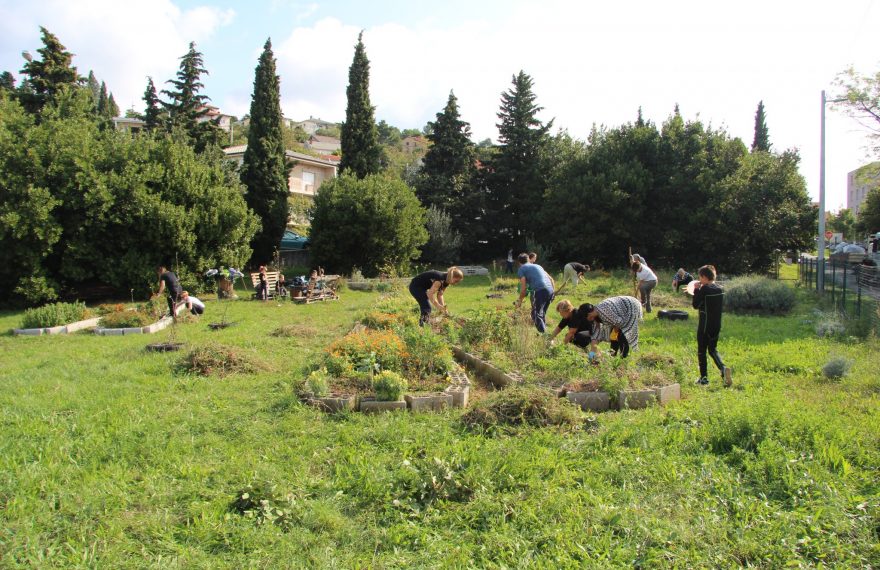Under the European Capital of Culture project, Rijeka hosted an interesting two-day conference on the sustainability of the food system.
Through seven lectures and presentations, the keynote speakers spoke on sustainable local food production and distribution and the link-up between the producers and customers via short food supply chains and solidarity models of mutual support. The conference brings together scientists in the fields of environmental protection, development economists, nutritionists, agronomists and sociologists, as well as experienced practitioners from civil society activity and social movements.
Examples of good practice regarding the organization of the food system from around the world were presented by Francesco Ajena, an agroecologist from the International Panel of Experts for Sustainable Food Systems IPES Food. IPES Food is an international panel bringing together experts and revolutionary thinkers on global food systems, coming from 18 countries and five continents.
Cities Should Take on the Leading Role in Sustainable Food Systems
In his presentation, Ajena showed examples of good practice from five cities, i.e. regions of the world – Brazil’s Belo Horizonte, the Nairobi City-County of Kenya, Amsterdam in the Netherlands, Canada’s Golden Horseshoe region, and Detroit, MI, USA.
“Cities are becoming increasingly isolated when it comes to food production. However, we will need to change that, since the United Nations 2016 data shows that 54% of the world’s population now lives in cities, and it is projected that this number will grow to 66% by the year 2050. Therefore, the need for cities to take on the leading role in implementing sustainable food systems has been recognized globally. Good urban and food policy practices are being documented and shared among cities as we speak in a variety of initiatives, working parties, conferences and publications, and this issue will increasingly have to become the focus of global attention”, summarized Franceso Ajena in his lecture.
Reduce the Amount of Food Waste
Andrej Kljun introduced the Food Network, a platform for the joint programmatic action of legal and natural persons with the aim of establishing an efficient national food donation and distribution system in the Republic of Croatia.
“400,000 tonnes of food waste per year is produced in Croatia due to systematic food surplus production. It has become a global issue in the entire Western world. On the other hand, our society is one with a high risk of poverty, and the gap between these two issues is increasingly turning into a yawning abyss. The global goal, at least when it comes to the Western world countries, which includes Croatia, is to achieve a 50% reduction in the amount of produced food waste by the year 2030. When it comes to our future plans and activities on a local scale, our ultimate goal is the establishment of a Bank of Food, since, if I’m not mistaken, we are the only EU member state without a legislative framework in place dealing with this issue. The Government of the Republic of Croatia has, upon our request, ordered a feasibility study carried out by Rijeka’s Faculty of Economics and Business. It has been forwarded to the Ministry of Agriculture, i.e. the state, and now we are to await further developments. In the meantime, we are organising a variety of local actions, such as public cooking events at the Rijeka Korzo, one of which took place in May, when all the money raised went to Rijeka’s Social Supermarket.”, Kljun said.
Organic Food Production in Rijeka and the Eko Vežica Market
Sonja Katana and Lena Povrženić spoke on the “Green Path”, the First Communal Urban Garden in Rijeka (prvi riječki zajednički urbani vrt “Zeleni put”) and on the Solidarity Exchange Group (Grupa solidarne razmjene – GSR).
Katana pointed out that the talks on the establishment of Solidarity Exchange Groups in Rijeka began in 2012 from a group of enthusiasts intrinsically motivated to care for our planet and for people in general, who arrived at the conclusion that the only power the common man has is to choose what to eat and what kind of products to buy and from whom to buy them. In time they also managed to establish the Communal Urban Garden, which can be found down the Green Path street in Brašćine, Rijeka. Initially, 20 plots of 20 m2 were made, and given that the garden had a good start, an additional plot was made available by the City of Rijeka. “We knew that the Urban Garden would not be able to yield large quantities of food, but it was important for us to educate people on natural cultivation methods”, Katana explained.
In time several independent groups sprang from the Solidarity Exchange Group, one of them being the Solidarity Exchange Group – East, which gave rise to the Eko Vežica farmer’s market, taking place on the first Monday of each month at the plateau in front of the Gornja Vežica department store.
“Over time the market gained popularity among the residents, the turnout is good, and our customers are quite often those with small children, as they are particularly the ones who find buying homegrown and untreated products very important ”, Povrženić pointed out.
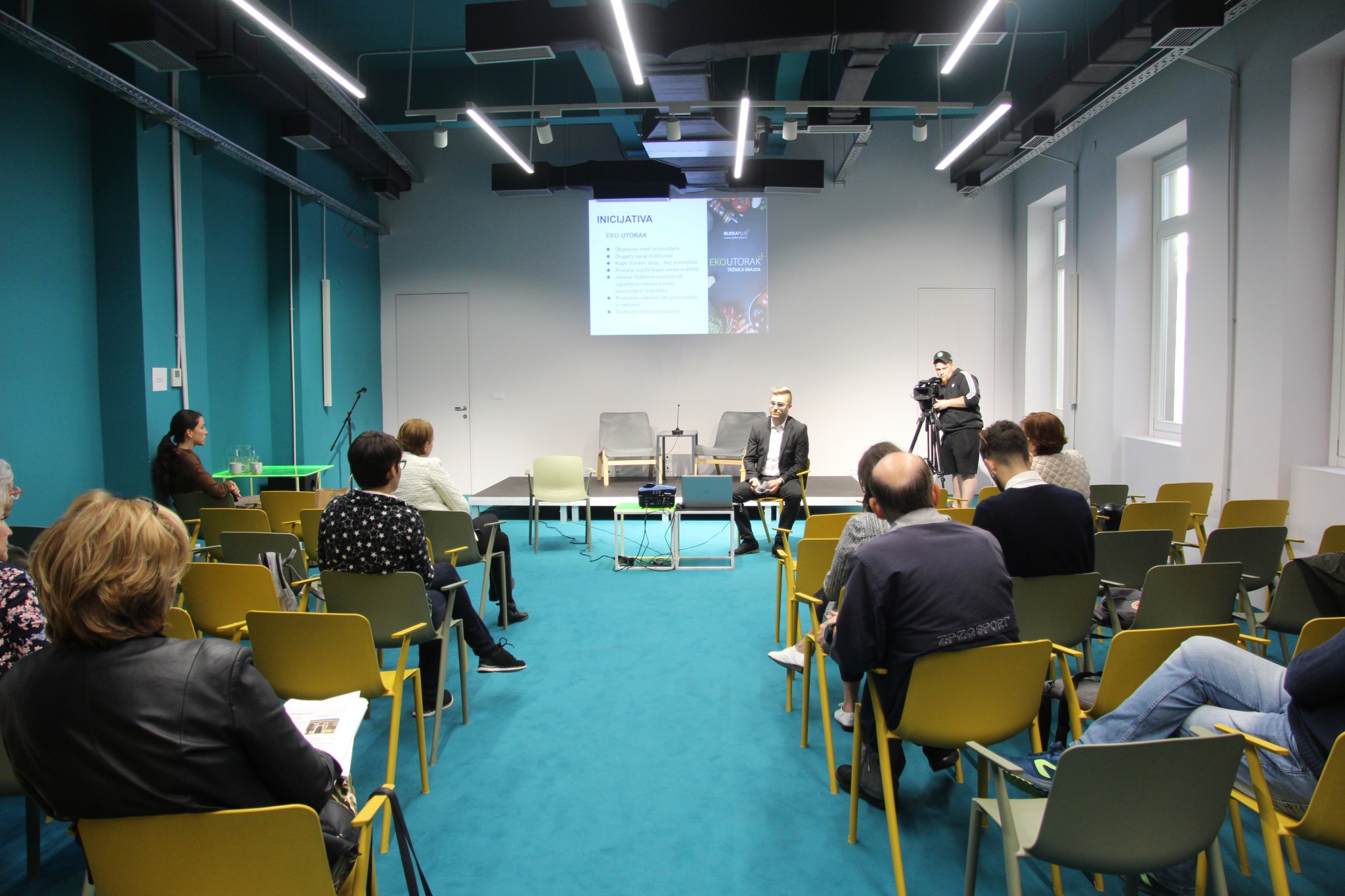
ECO-Tuesday at the Brajda Market
Albin Polak from Rijeka plus d.o.o. spoke on the pilot-project entitled “ECO-Tuesday” (EKOutorak) which was implemented at the Brajda market with the aim of bringing producers and consumers closer together, and thus provide consumers with a wider selection of organic products.
“Our motivation behind the implementation of this project was to ‘test the waters’ with our citizens regarding products like these, and to see whether they would be interested in them at all. We tried to introduce a complementary offer without disrupting the existing tenants’ daily turnover, and our research has shown that these tenants were actually the ones who saw increased returns during the duration of the ECO-Tuesday project. The fact that the residents came back to us asking when will an event like this take place again gives us great satisfaction, so I firmly believe our future plans to implement this project in Rijeka’s Main Market, and in the one in Zamet will also prove to be a success”, Polak explained.
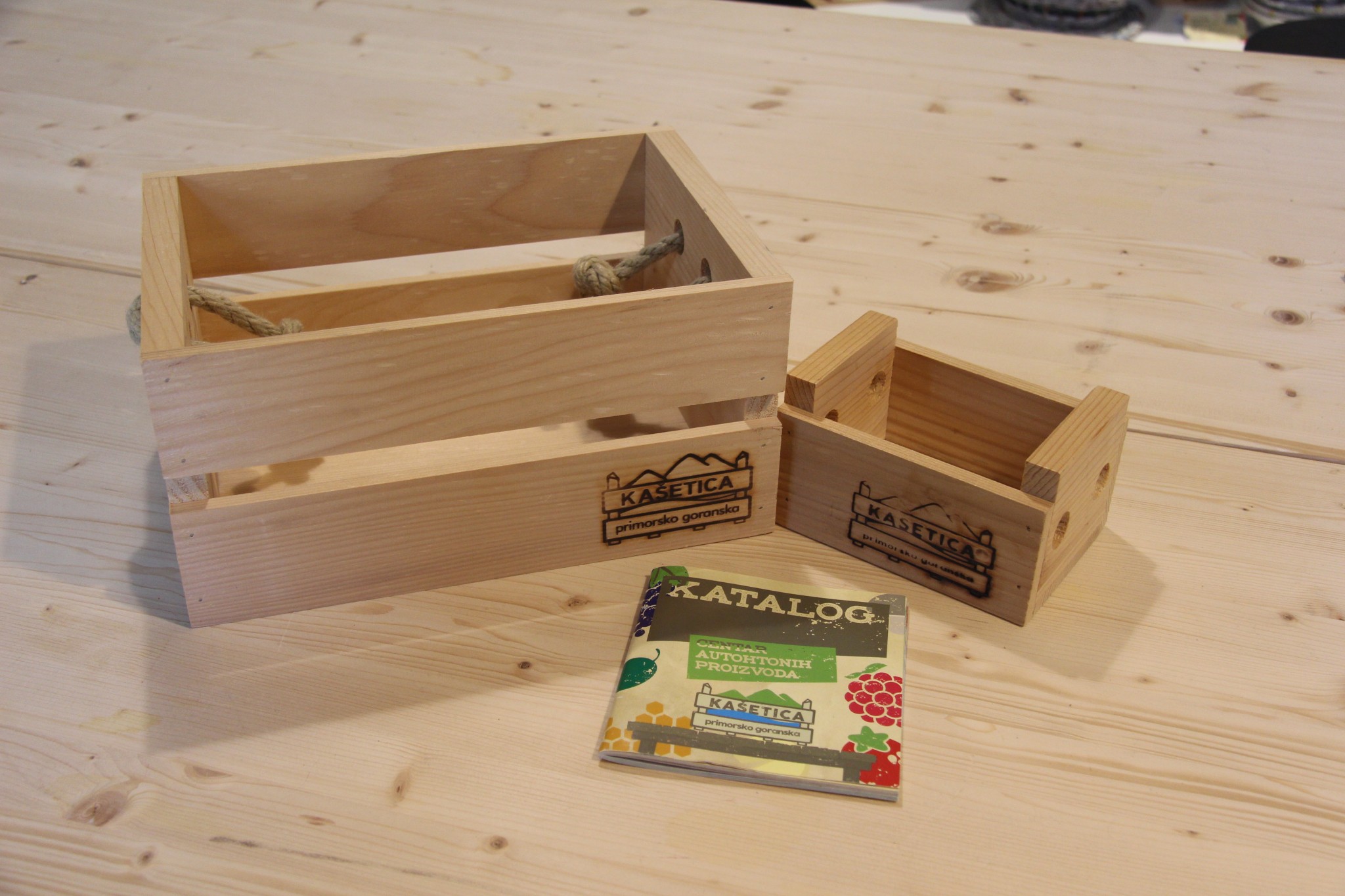
Branding of Indigenous Products
Teodora Cimaš from the Primorje-Gorski Kotar County Centre for Agriculture and Rural Development and the Kašetica (“small wood crate”) Centre spoke on the short food supply chain and support for local producers in Primorje-Gorski Kotar County.
“The centre cooperates with about a hundred producers from our entire county, and our first and foremost task is branding their products, which is at the same time the biggest challenge we have to face. In the last two years we took part in more than 50 promo events, fairs, and conferences, so as to increase the overall visibility of these products and, on a local scale, we organise trade fairs at the Korzo five times a year. All these products may also be bought at Kašetica, and to make things easier for the producers, the prices of their products at Kašetica are exactly the same as when they sell their products at their doorstep”, Cimaš said.
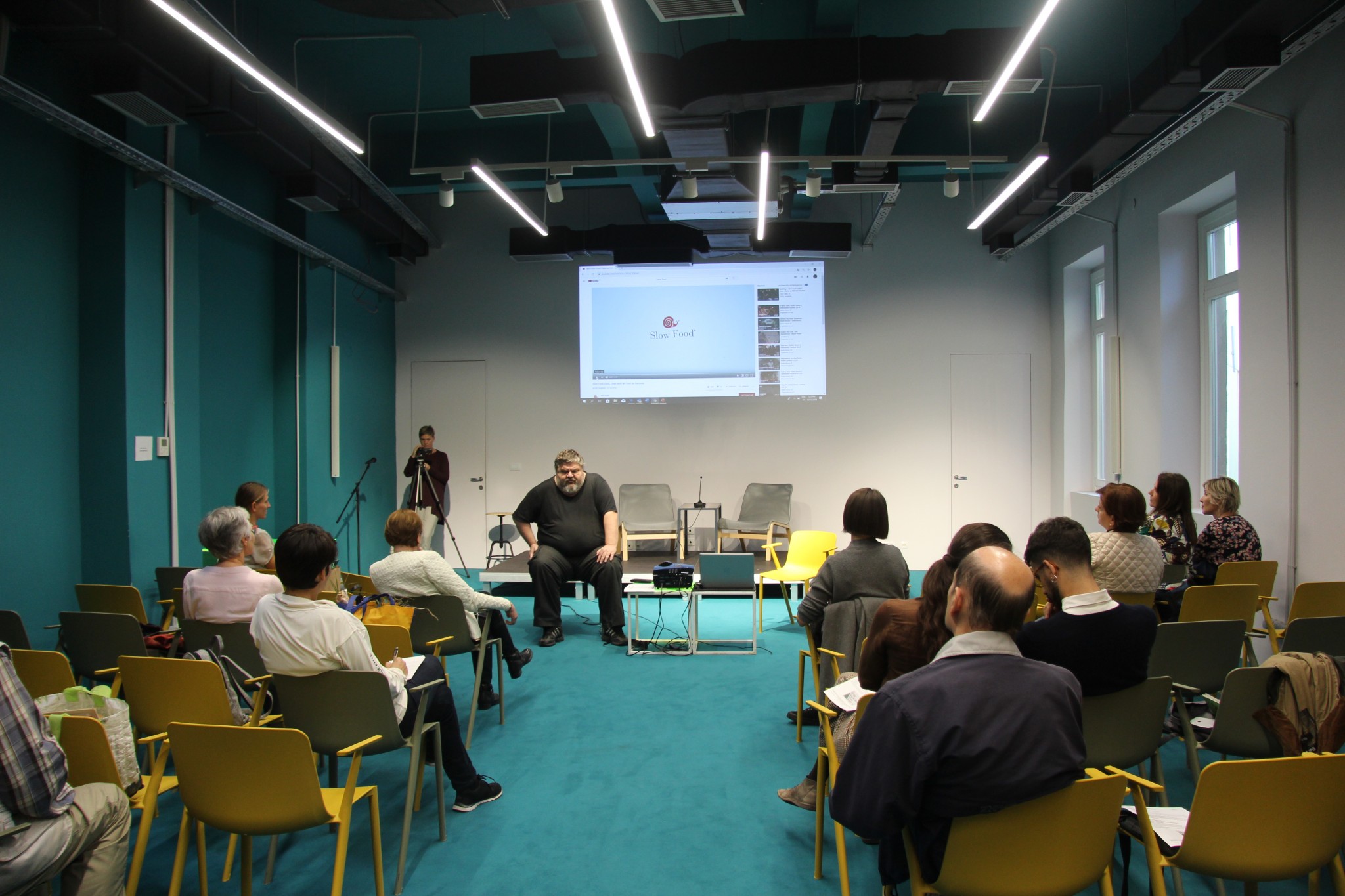
Protect Indigenous Food and Producers
Using the paradigm of the Slow Food movement Vjeran Piršić described how to reconstruct and modernise indigenous agriculture.
He explained that Slow Food is a global organisation that originated in Italy with the preservation of indigenous Italian food as its main goal. Soon after, the movement went global with the same goal, and Piršić structured his lecture around the island of Krk as the Croatian example of the implementation of the movement’s ideas.
“A process of rethinking sustainable development began on the island of Krk in 1996. It all started within the field of spatial planning, with the three main pillars that such development should be based on – food, water and energy. The driving force behind this process should be the local authorities, and each individual producer should be offered assistance tailored specifically to them, so as to minimize the number of mistakes being made in the process”. These were but some of the points Piršić made during his lecture.
Working individually with each producer is an absolute necessity, as people are often prone to making mistakes.
“Fifteen years ago, a group of enthusiasts from the island began rethinking sustainable development, and they’ve reached a conclusion that the local community should find a way of reviving food production on the island of Krk”, Piršić concluded.
At the end of the first day of the conference a panel discussion took place with the participation of all the keynote speakers.
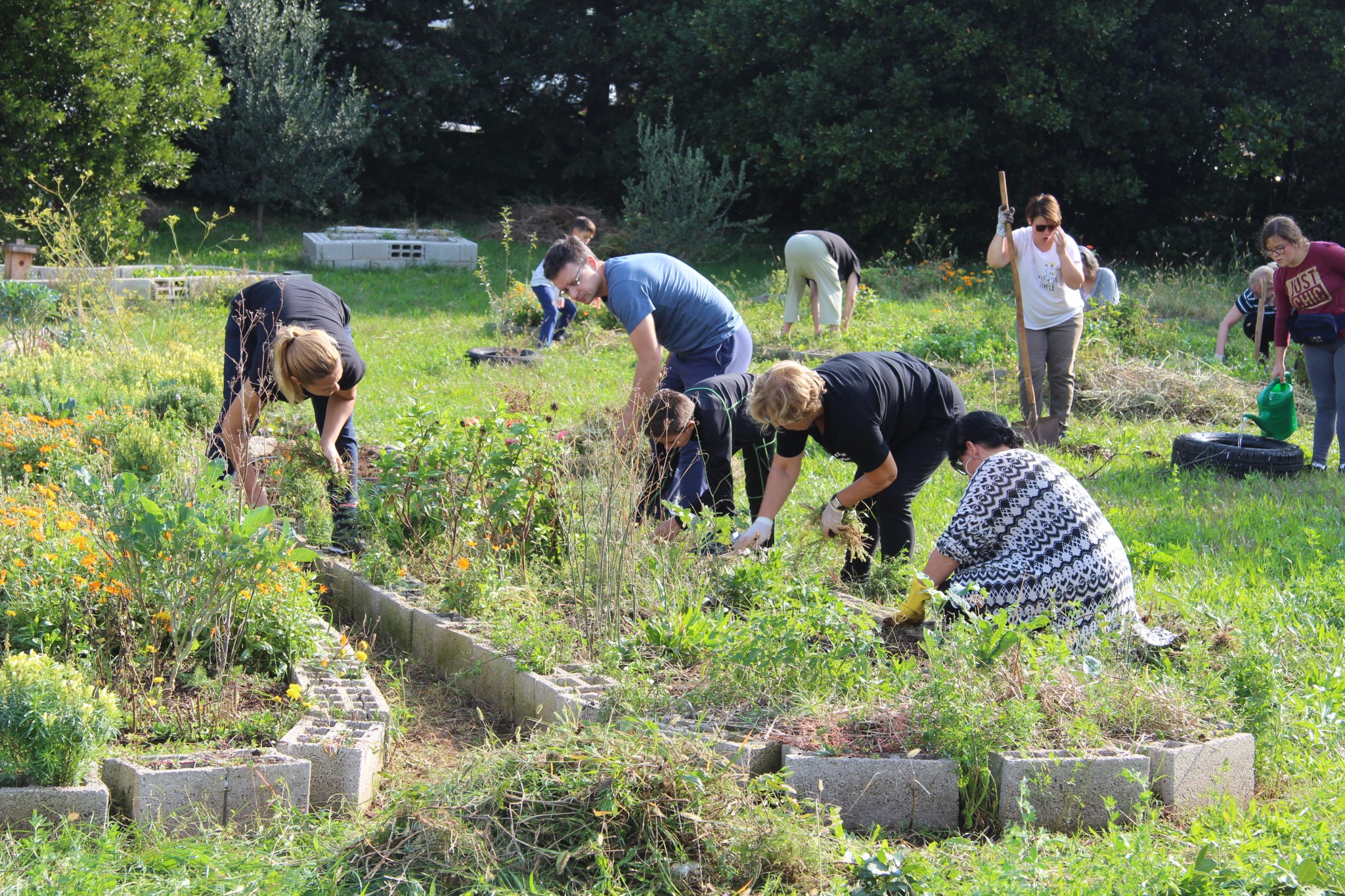
The Best-tasting Produce is the One we Grow Ourselves
The second day of the conference began with on-site visits to gardens and distribution centres. The school garden of the Gornja Vežica Primary School is tended by its teachers, students and their parents, while all the neighbours, i.e. residents of Gornja Vežica are more than welcome to lend a helping hand at any given time.
“In the garden we usually plant seasonal vegetables, which are then tended and subsequently sold in the school’s facilities by the members of the student co-operative. Making a winter garden with a plant nursery is also part of our plans. Tending a garden is an excellent chance for everyone to have a great time, while at the same time educating our students on this topic”, said the school’s headteacher Bojana Matešin.
The tour went on at the Kašetica Centre for Indigenous Products, where visitors were able to check out the offer of local products originating from the entire Primorje-Gorski Kotar county, which can easily double as ideal gifts or souvenirs. Afterwards, those interested went on to see Rijeka’s first urban garden at Brašćine.
The visitors were very warmly welcomed by a group of local gardeners, who were more than happy to showcase their plots and products. “We come here to do some gardening, primarily because we love doing it, and because we find it relaxing, but also because the produce you grow yourself is ultimately always the best tasting”, concluded the gardeners.
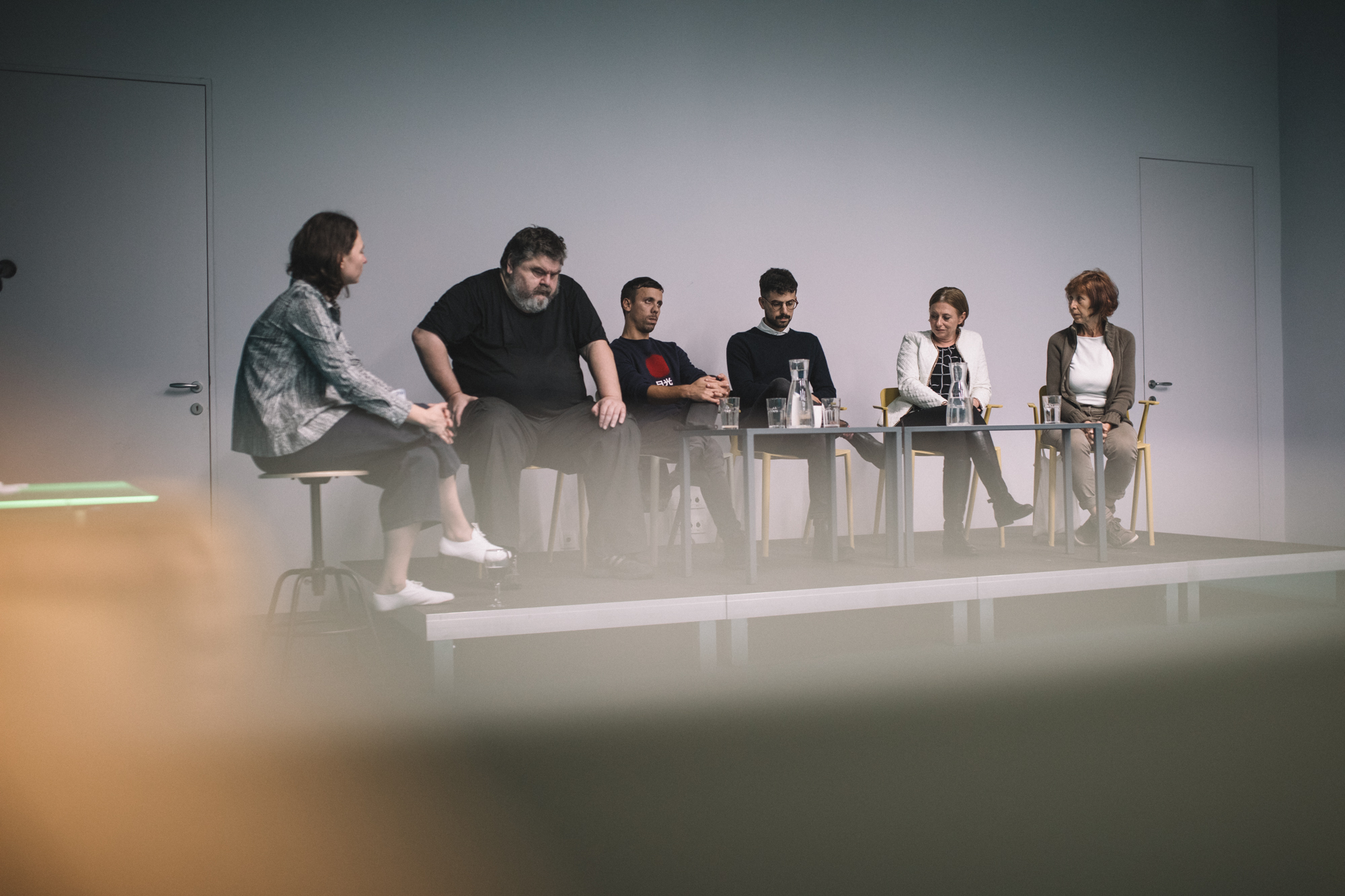
The two-day Retox Conference ended at the RiHub, where a workshop led by Francesco Ajena took place, intended for the members of the initiatives dealing with food.
This workshop was envisioned as a platform for participants to share their experiences and propose solutions for activists and initiative members that organise urban gardens and the distribution of local food, in line with the examples of good practices from around the world.
Photo: Tanja Kanazir & Rijeka 2020





